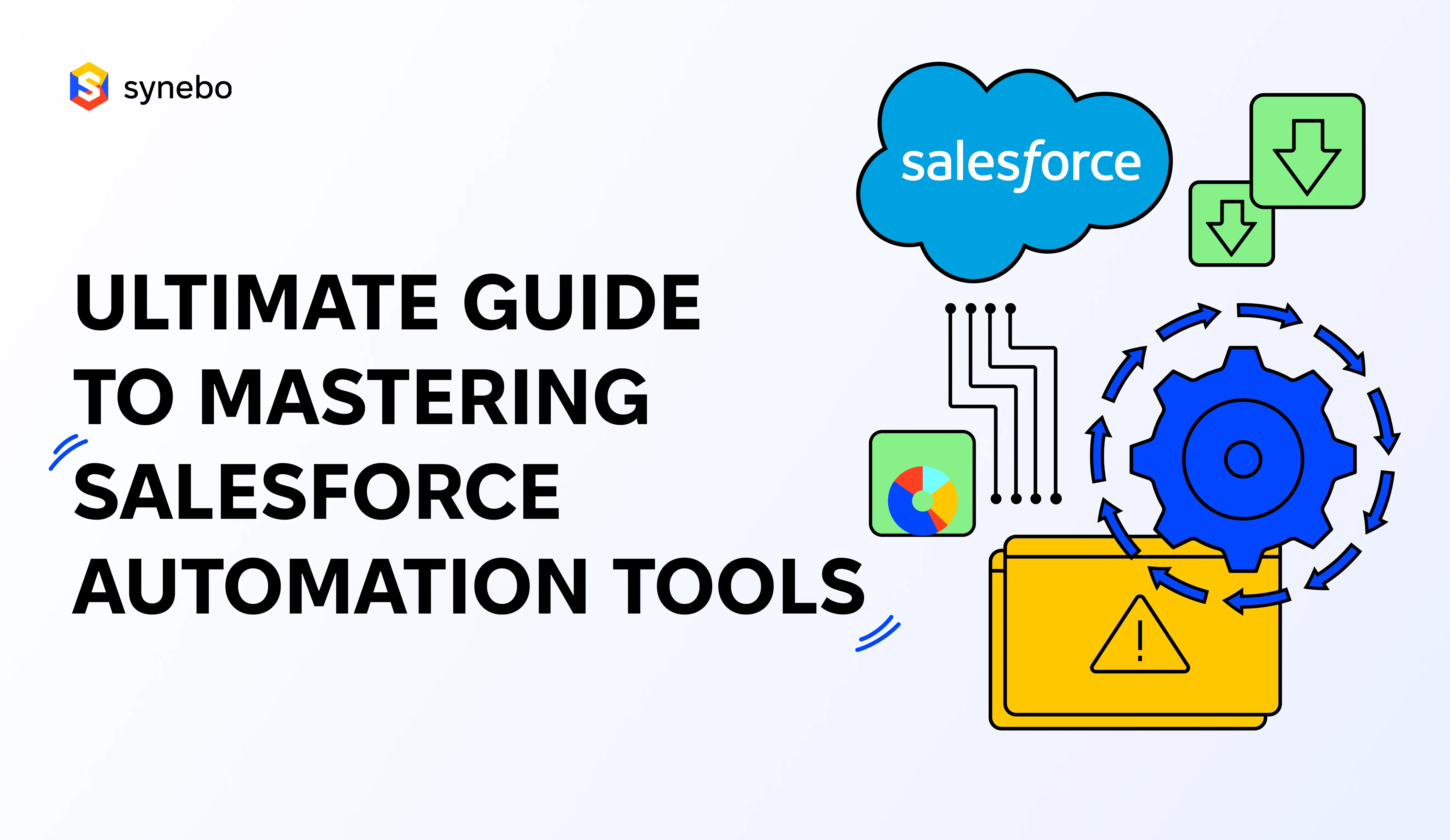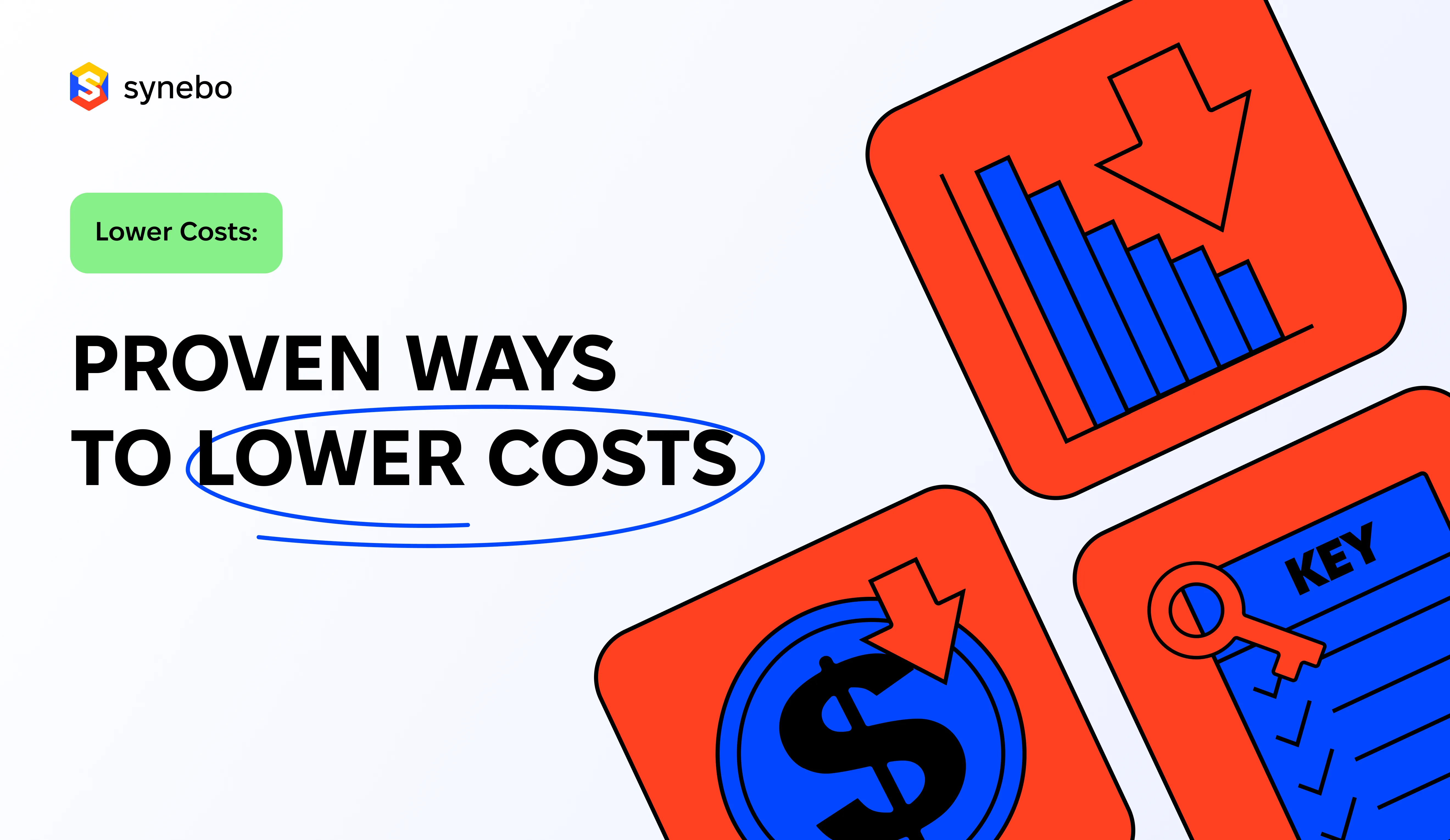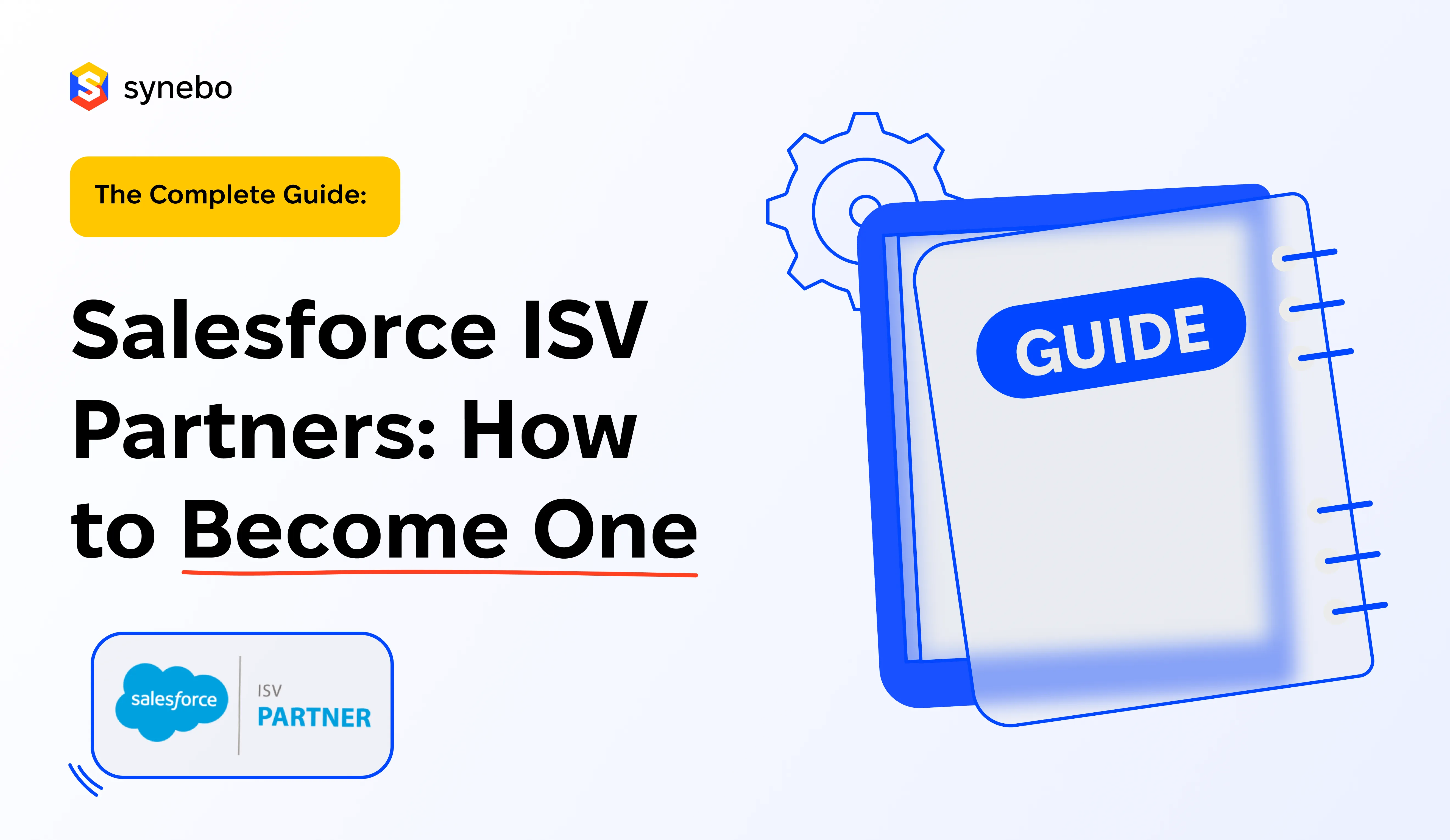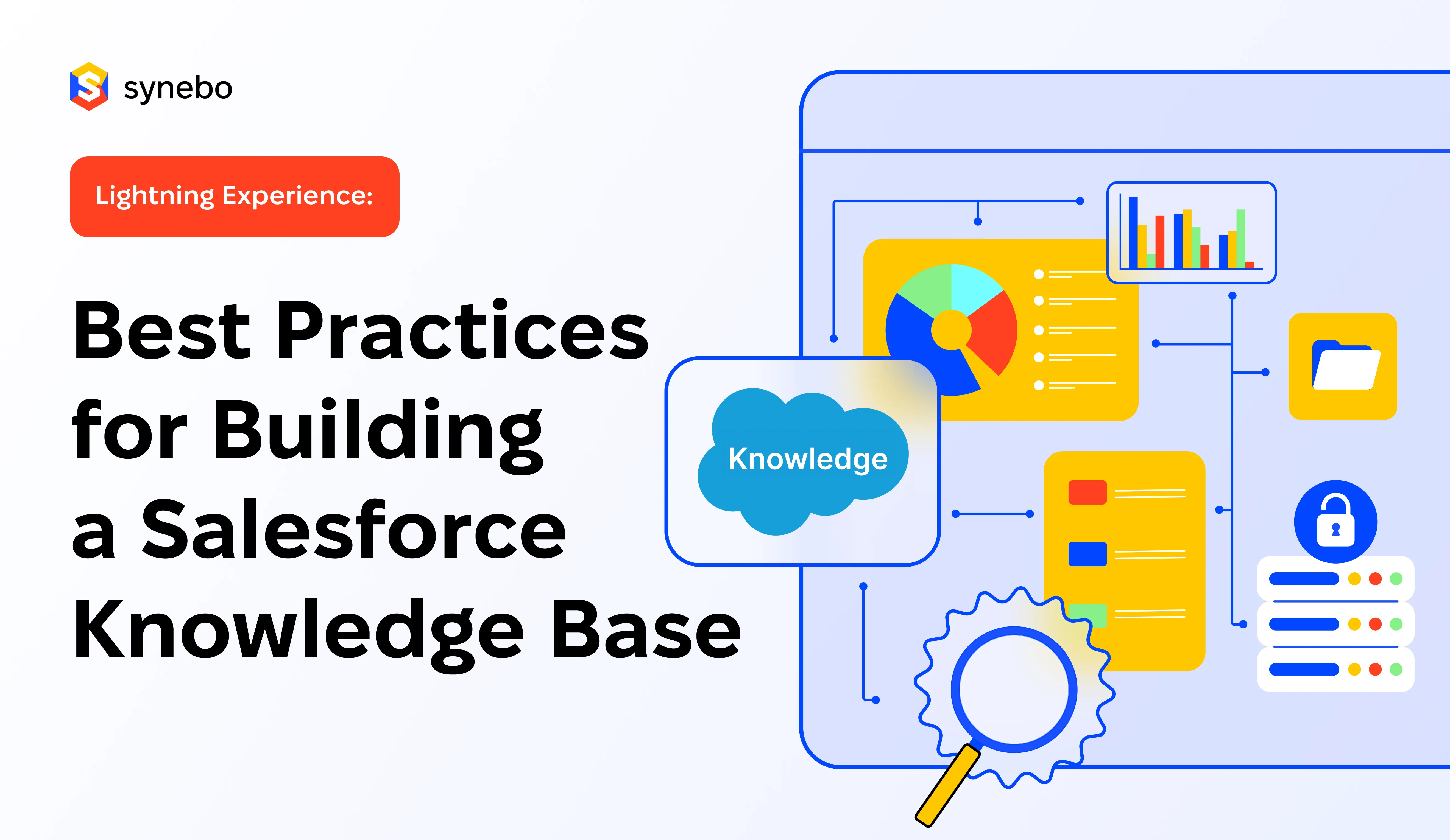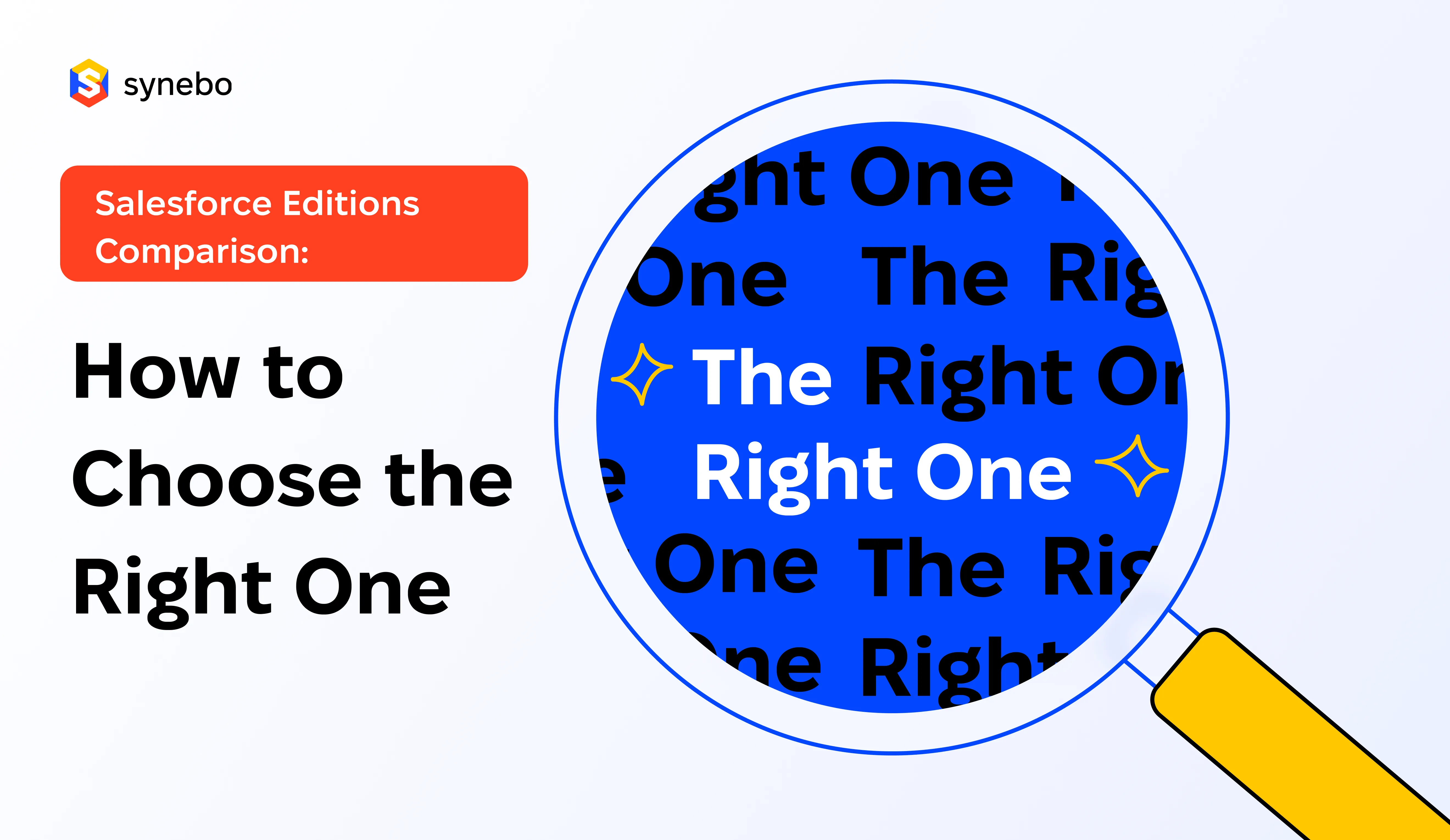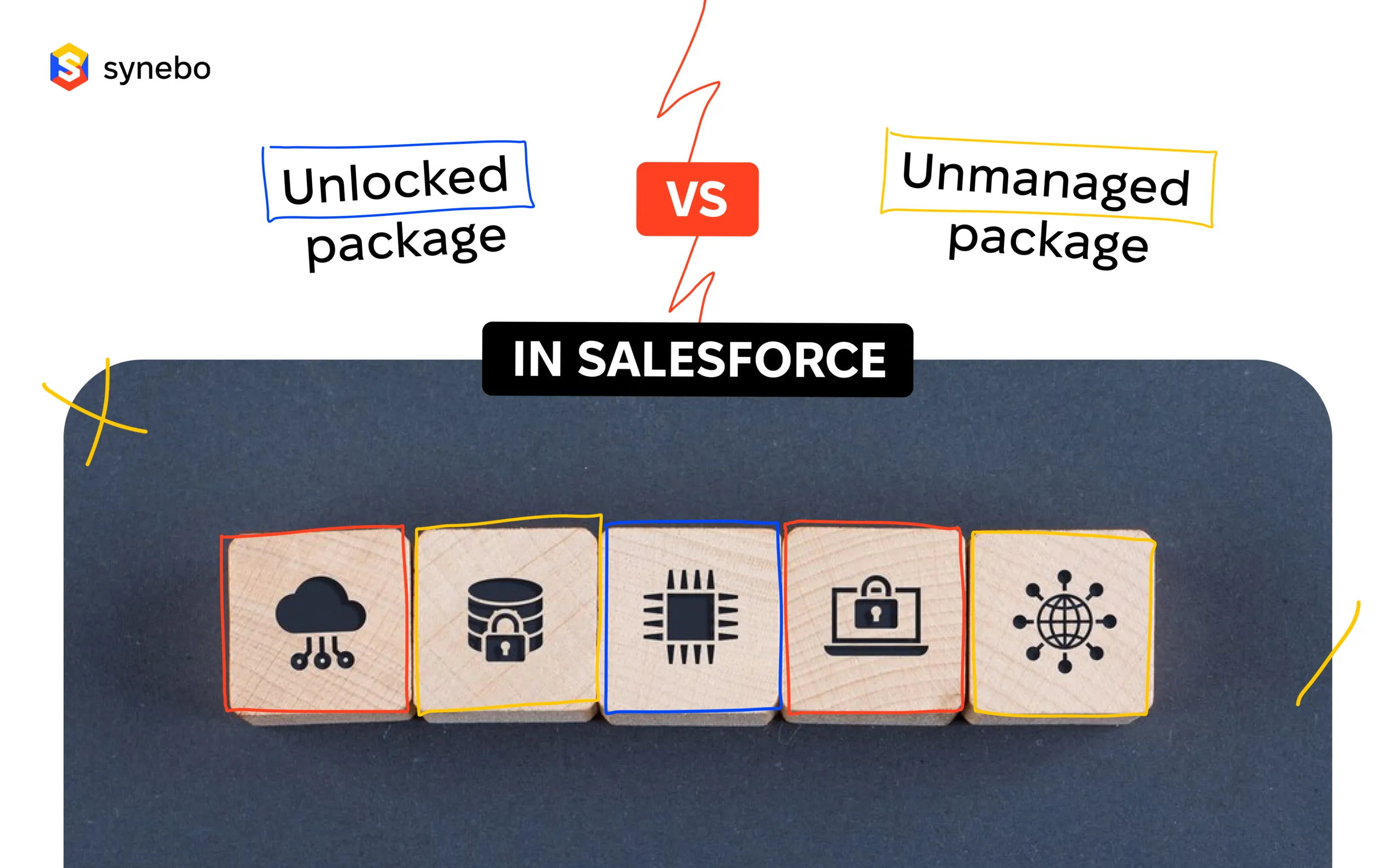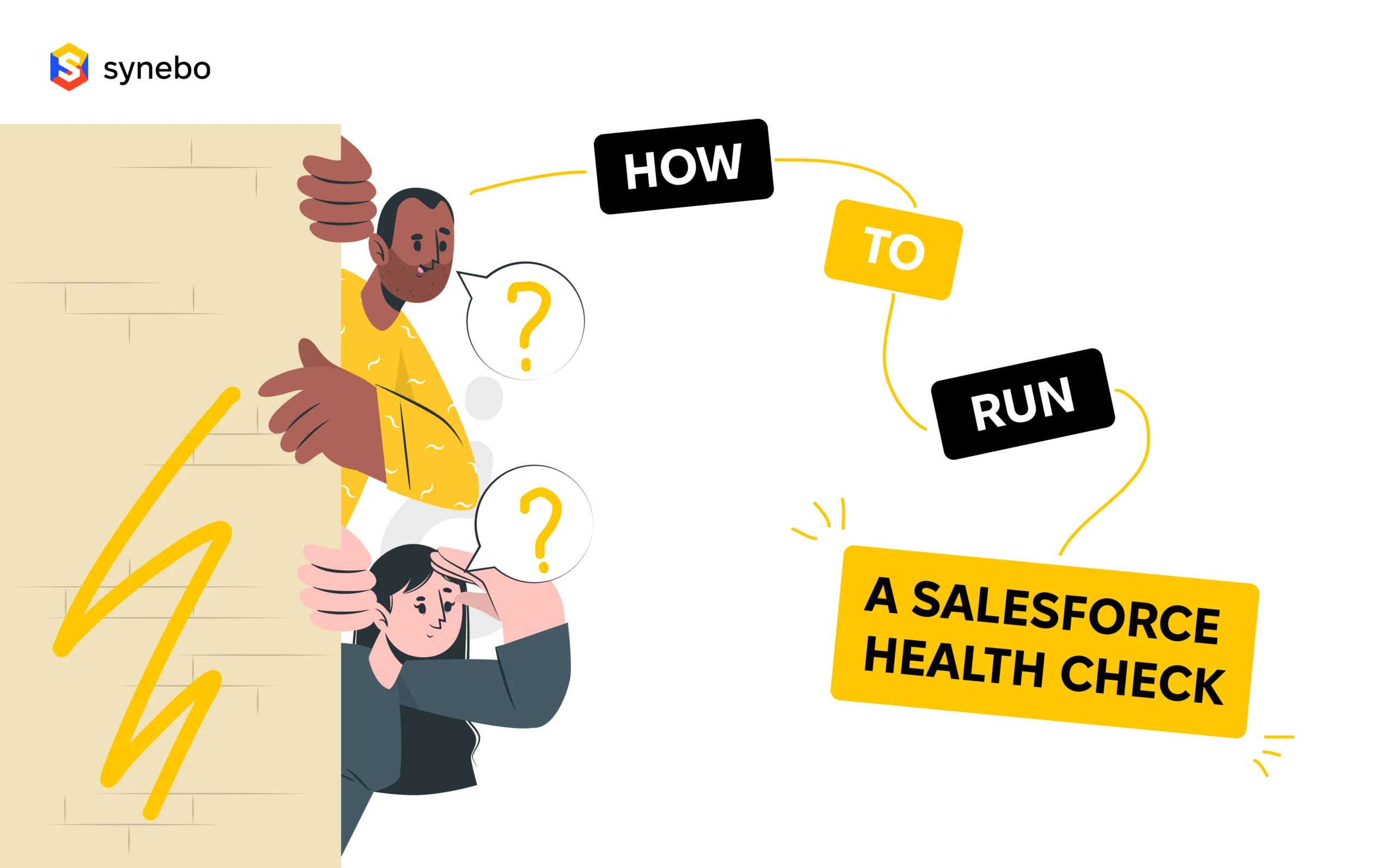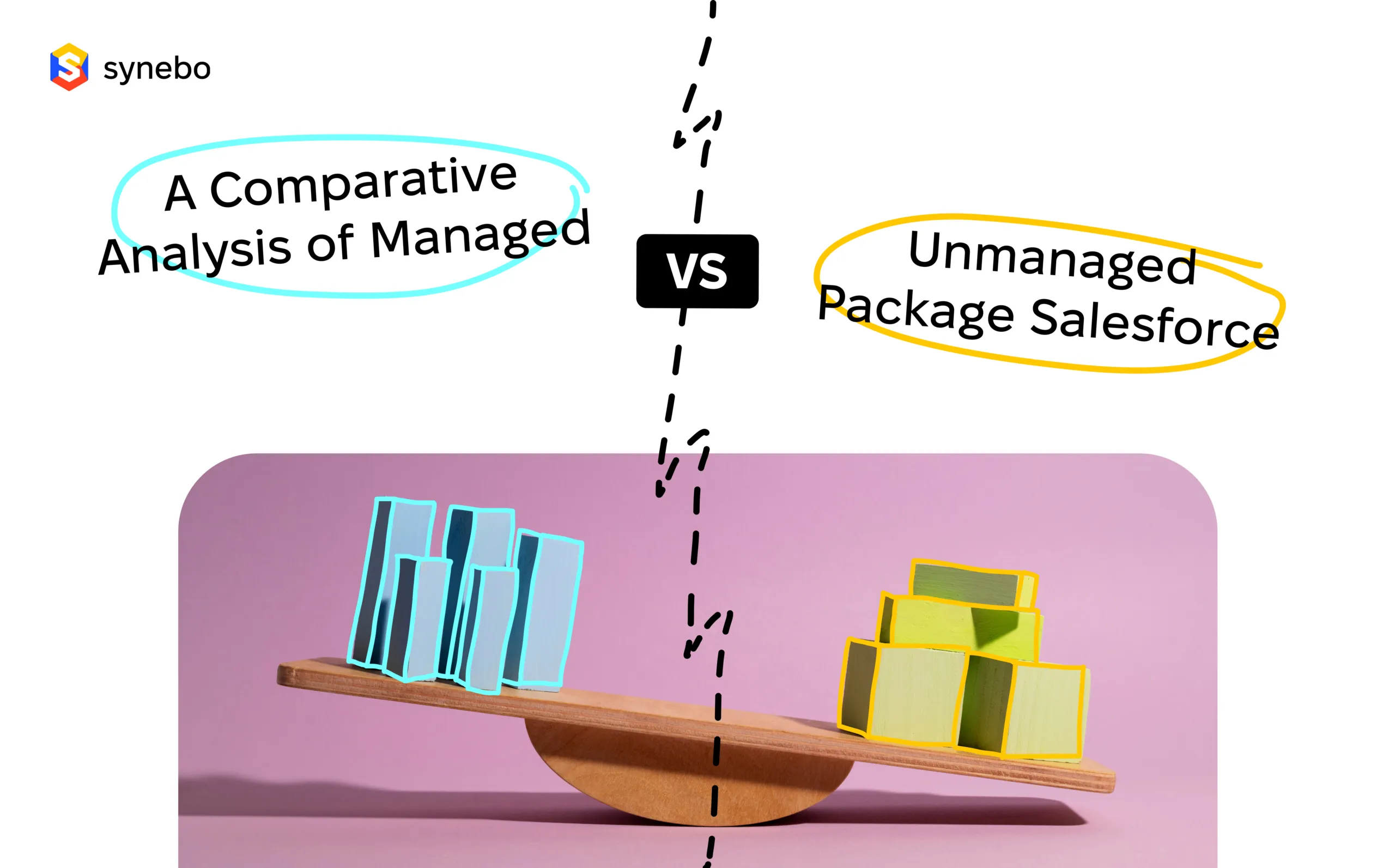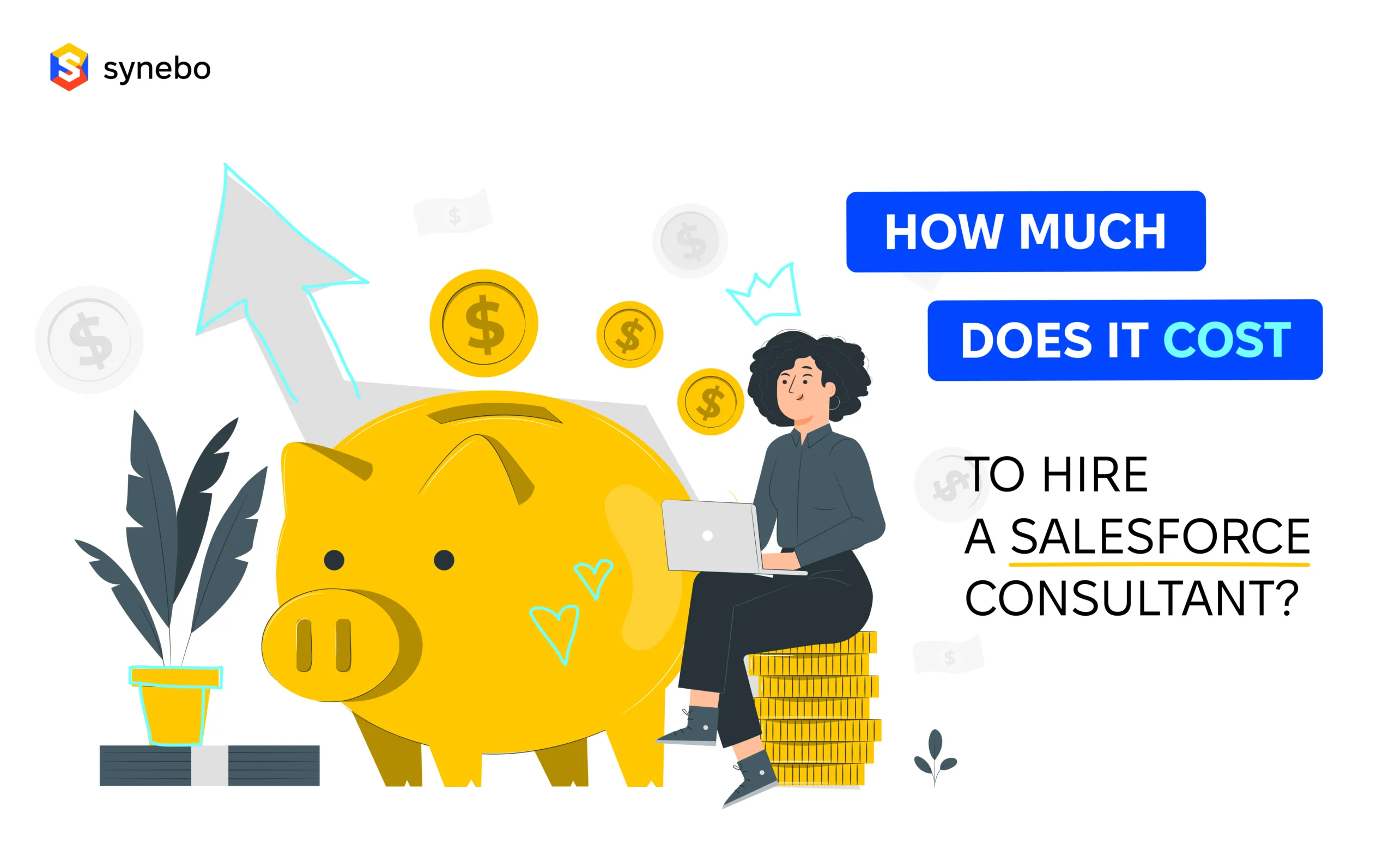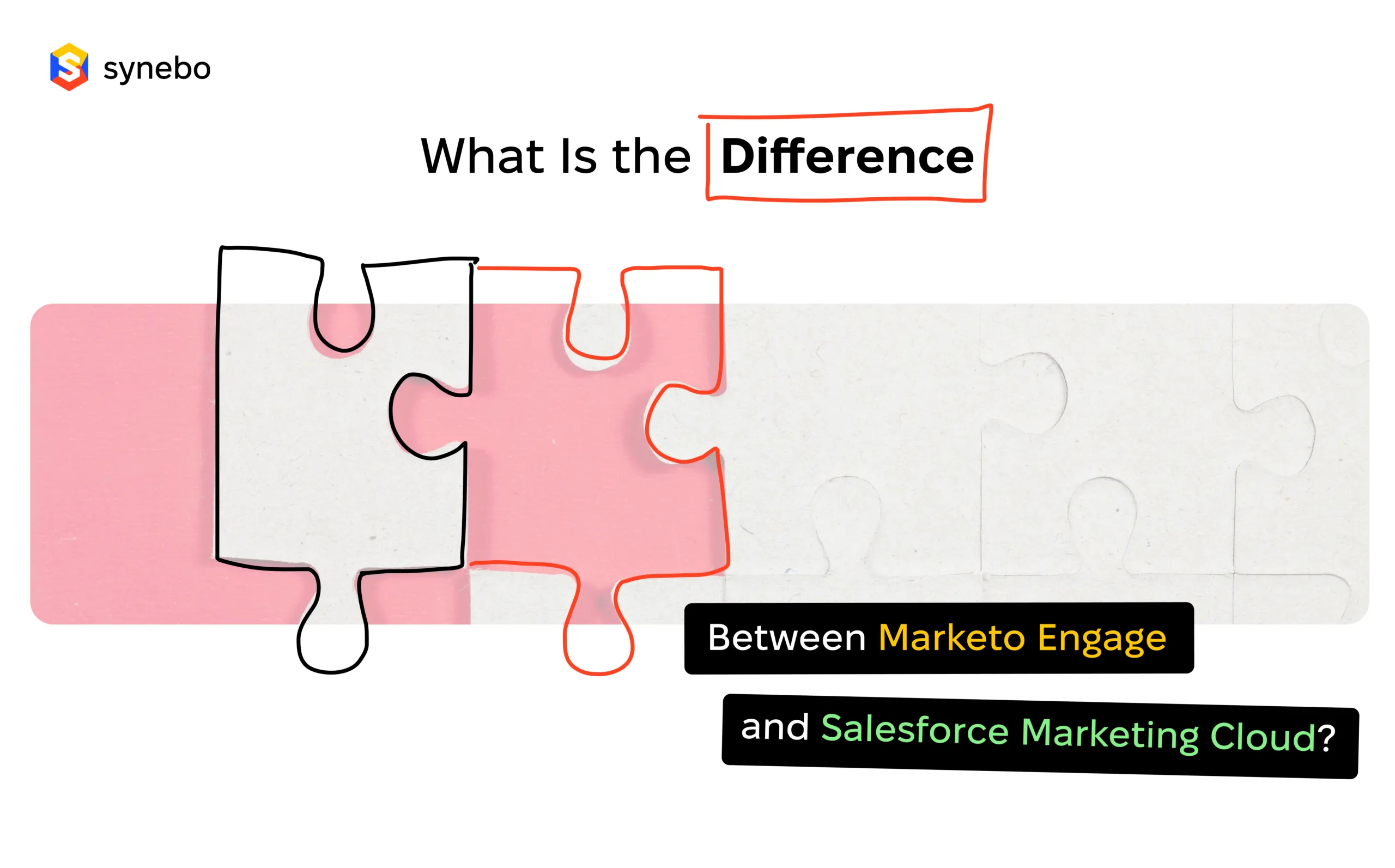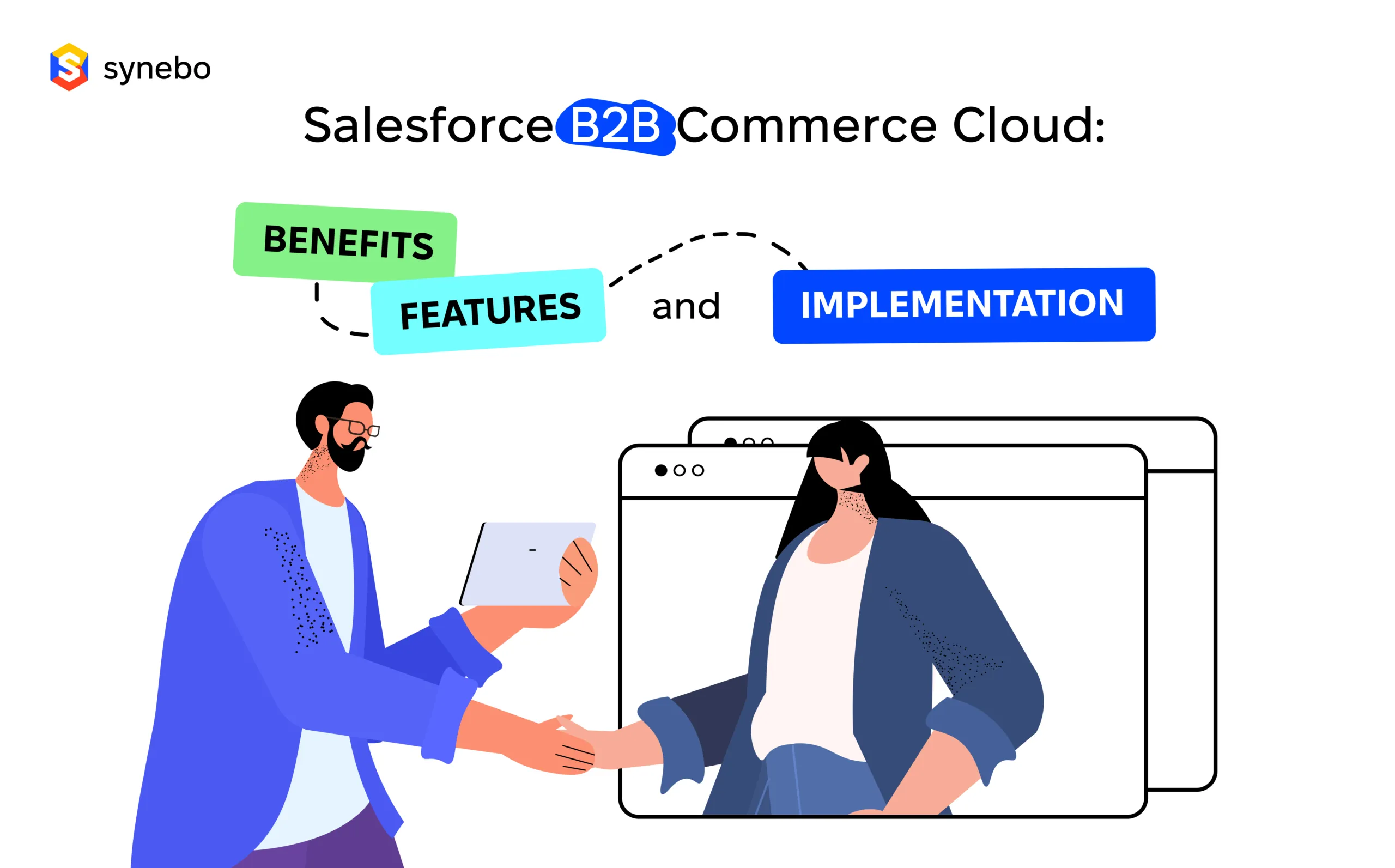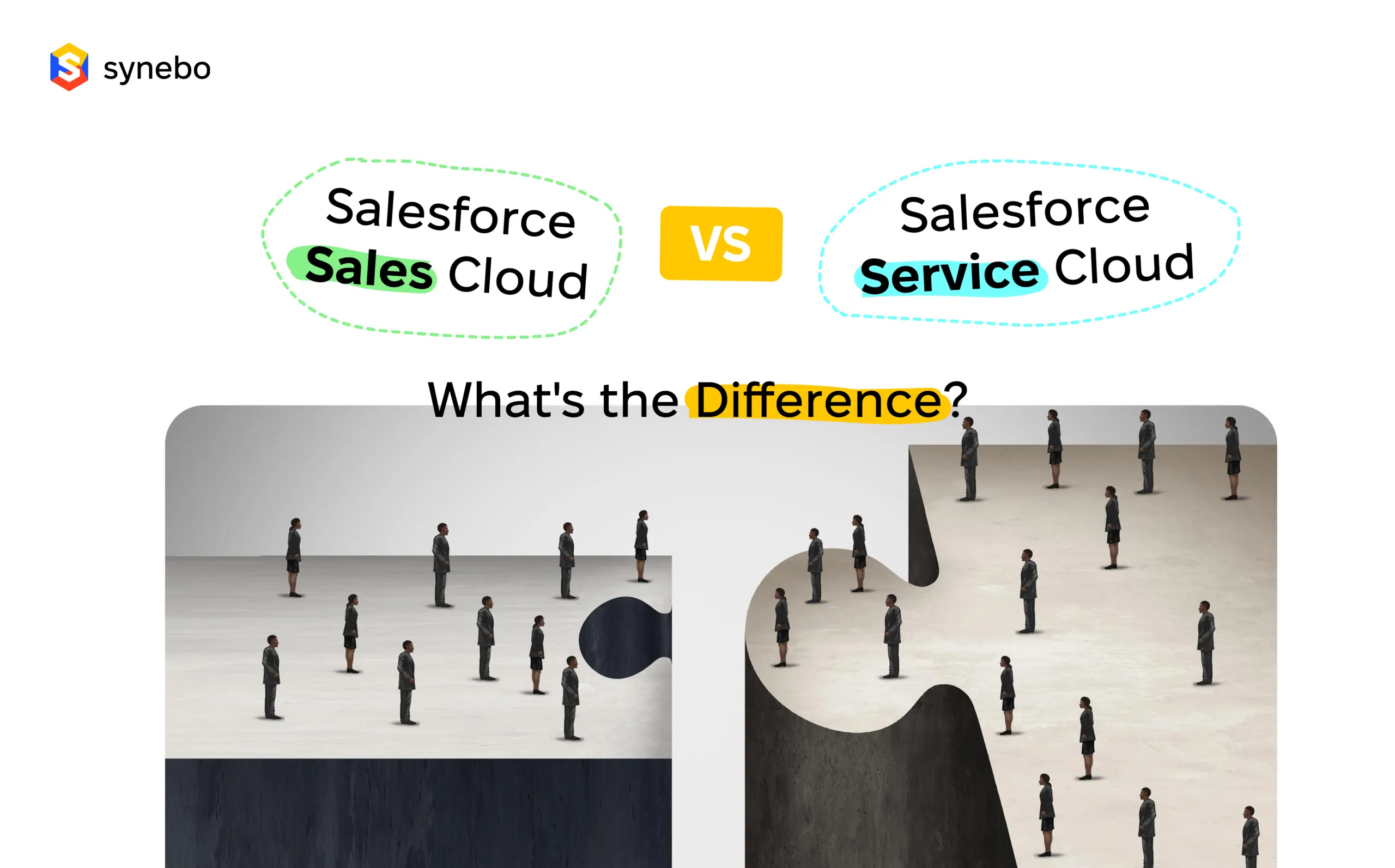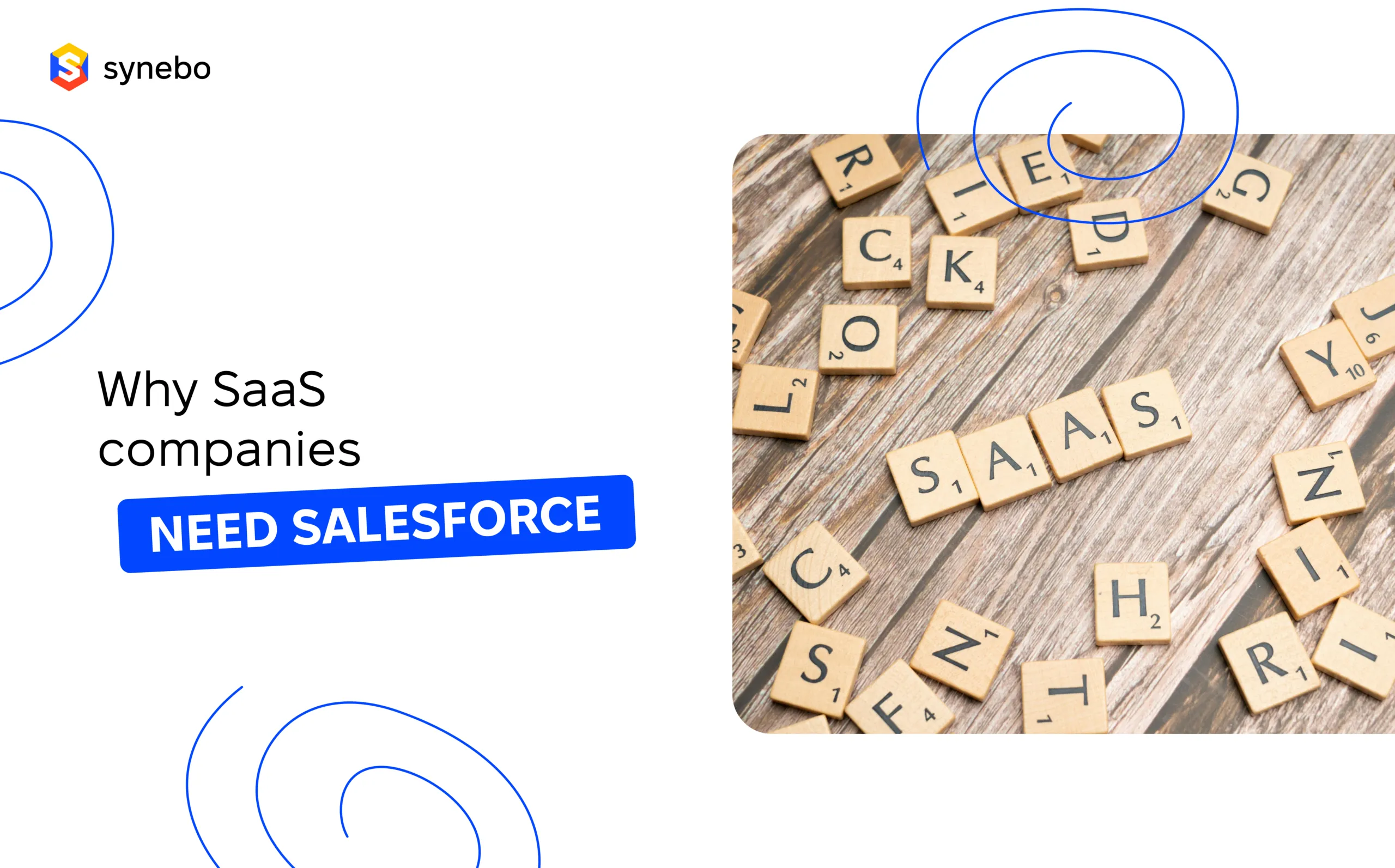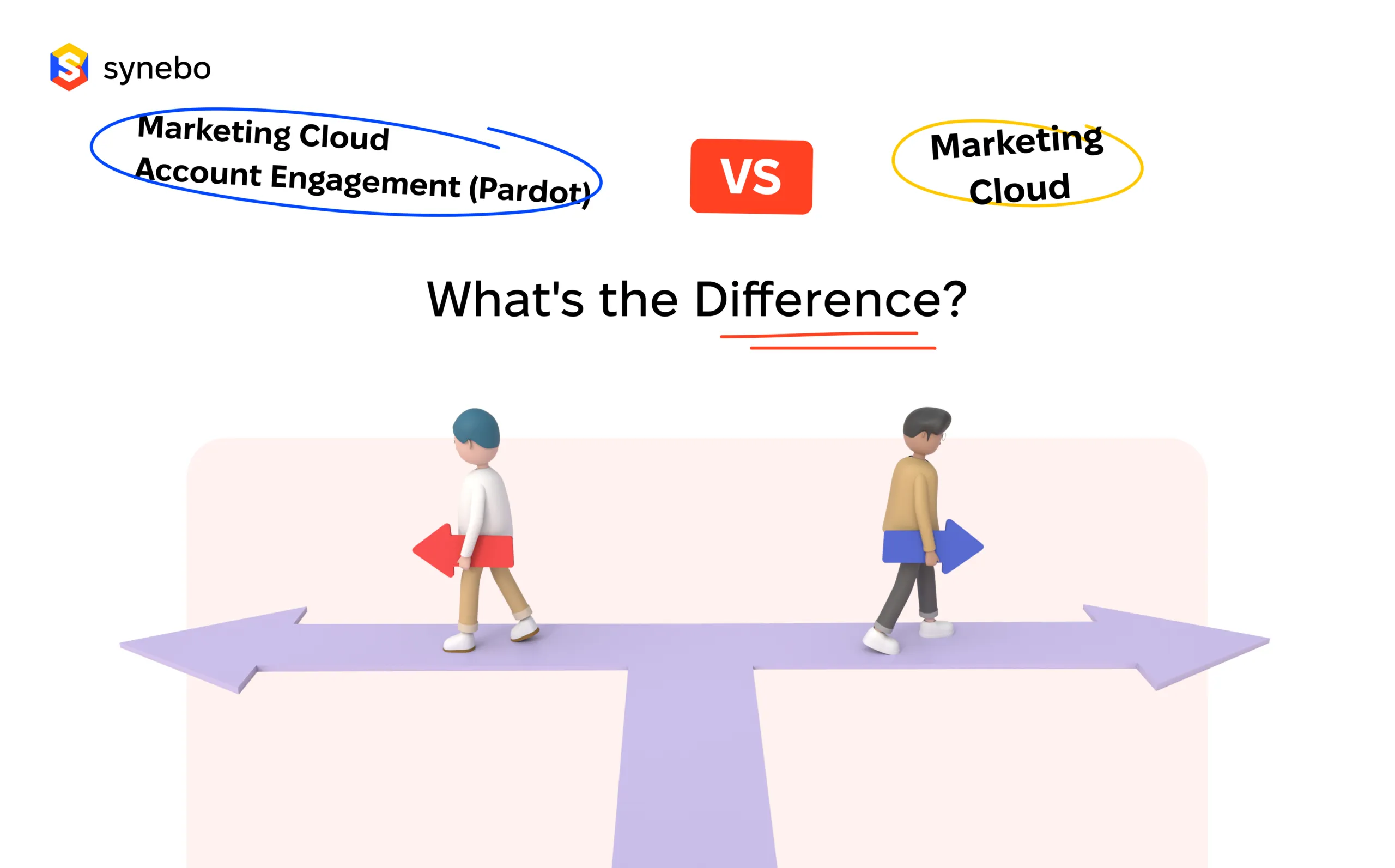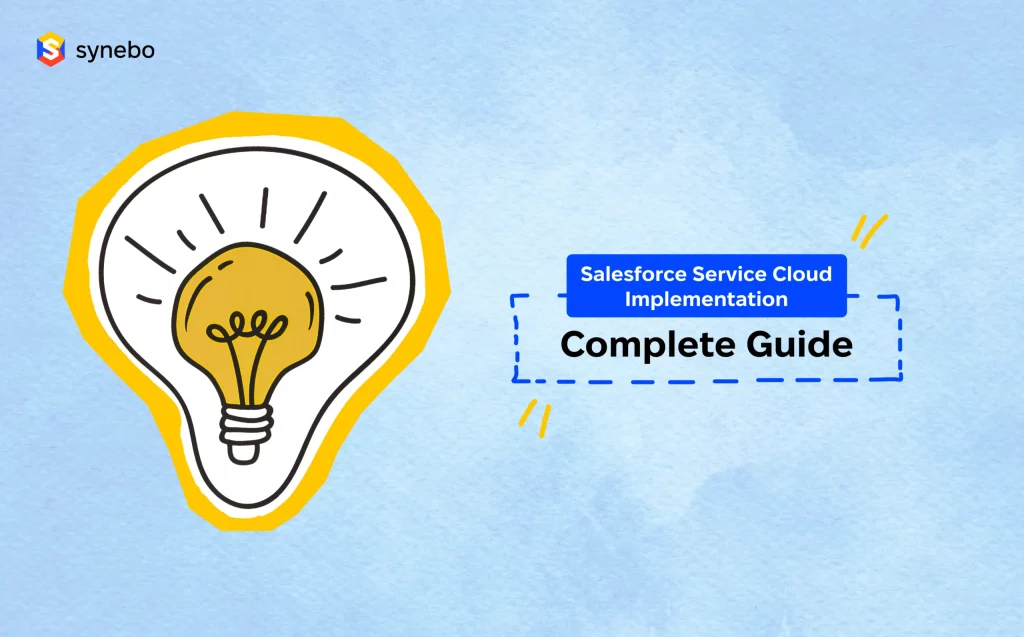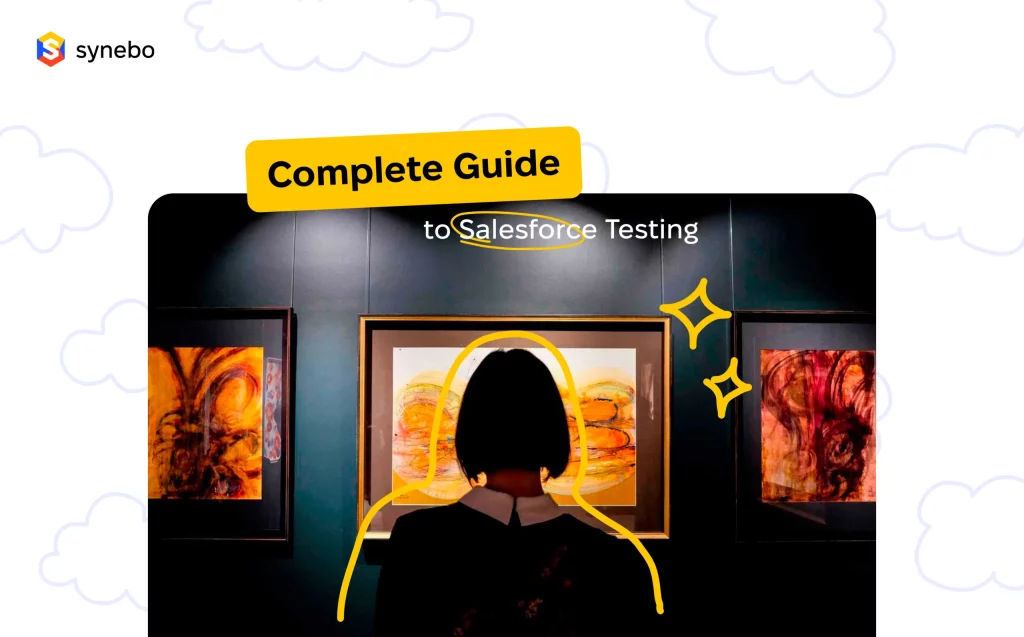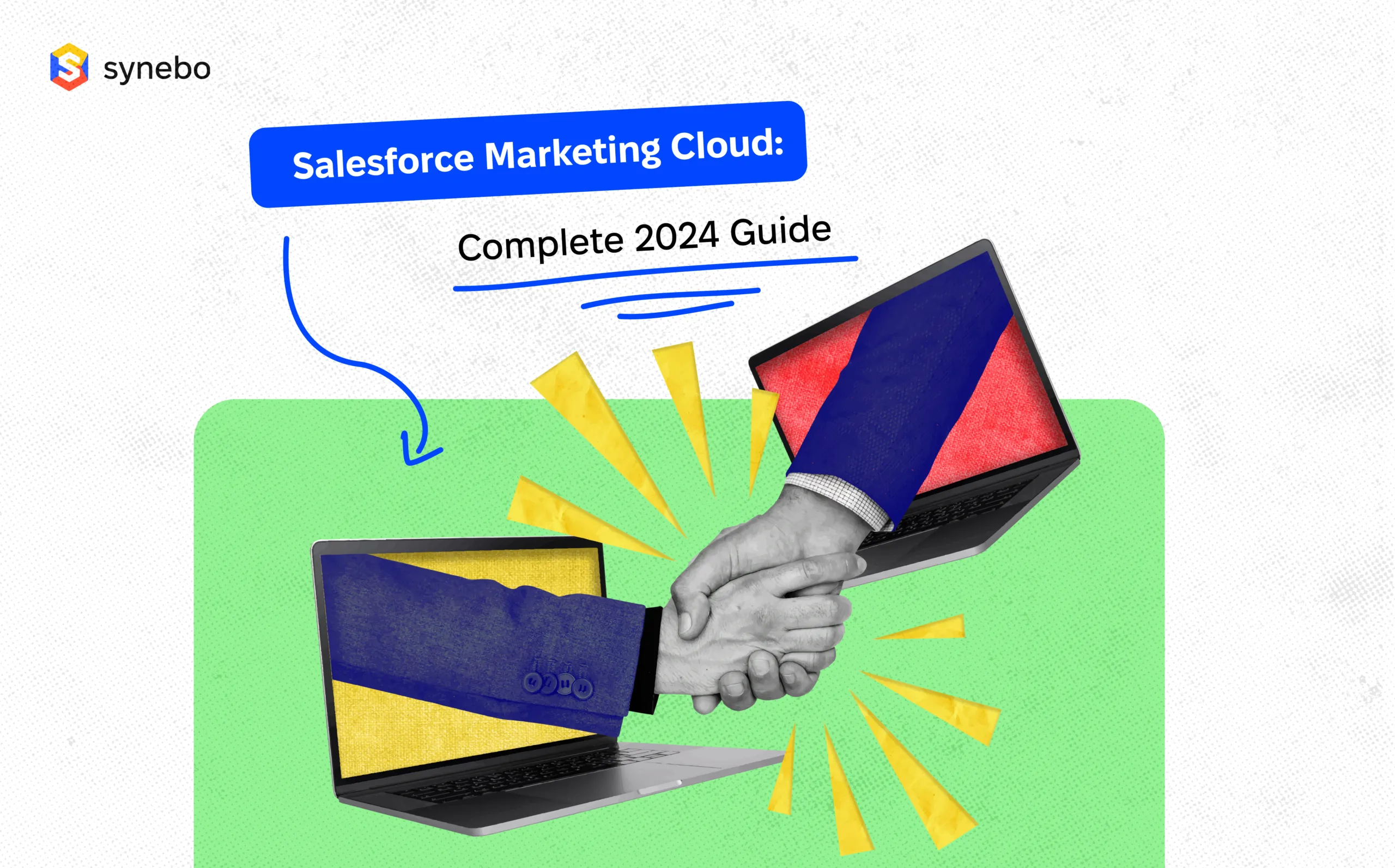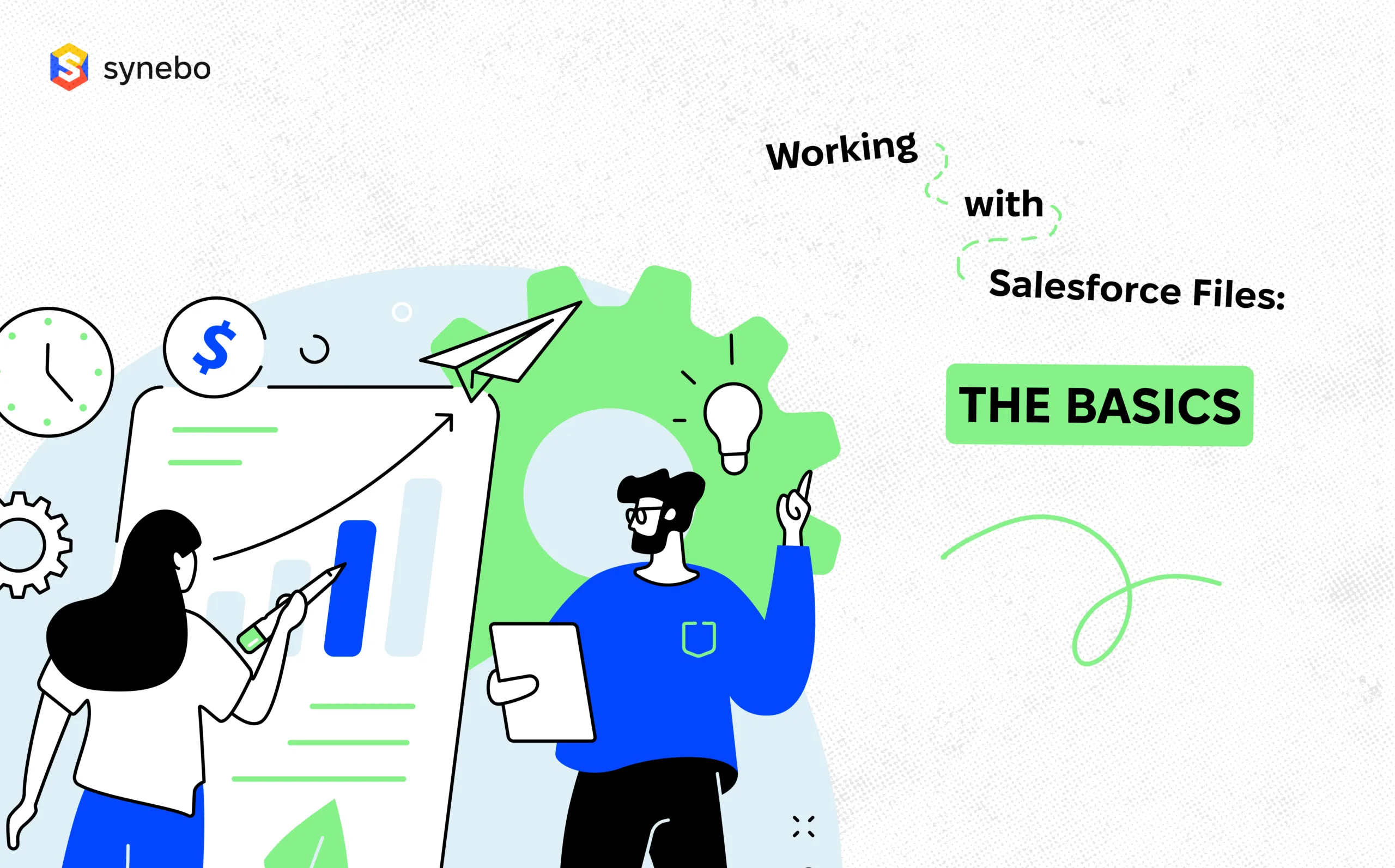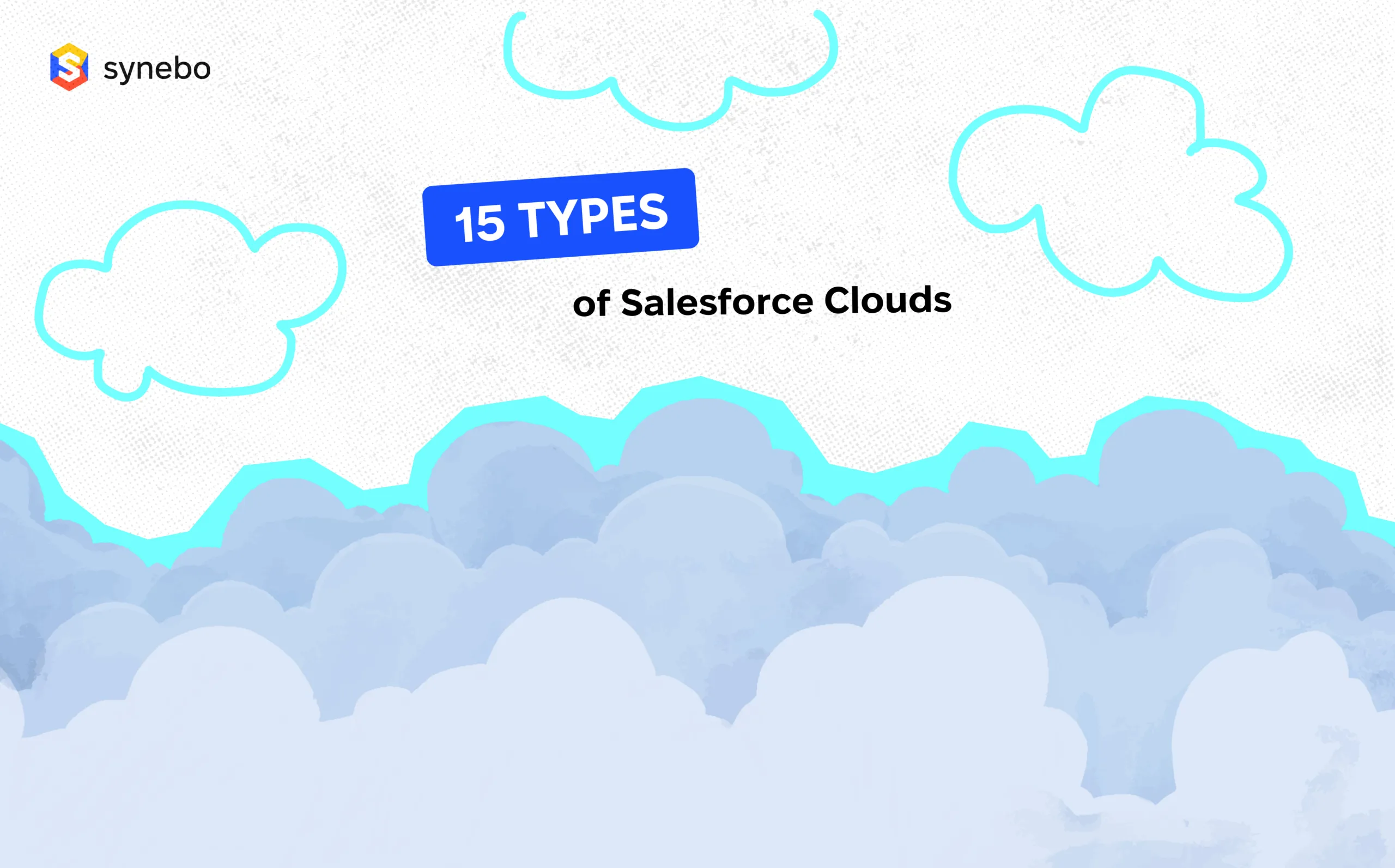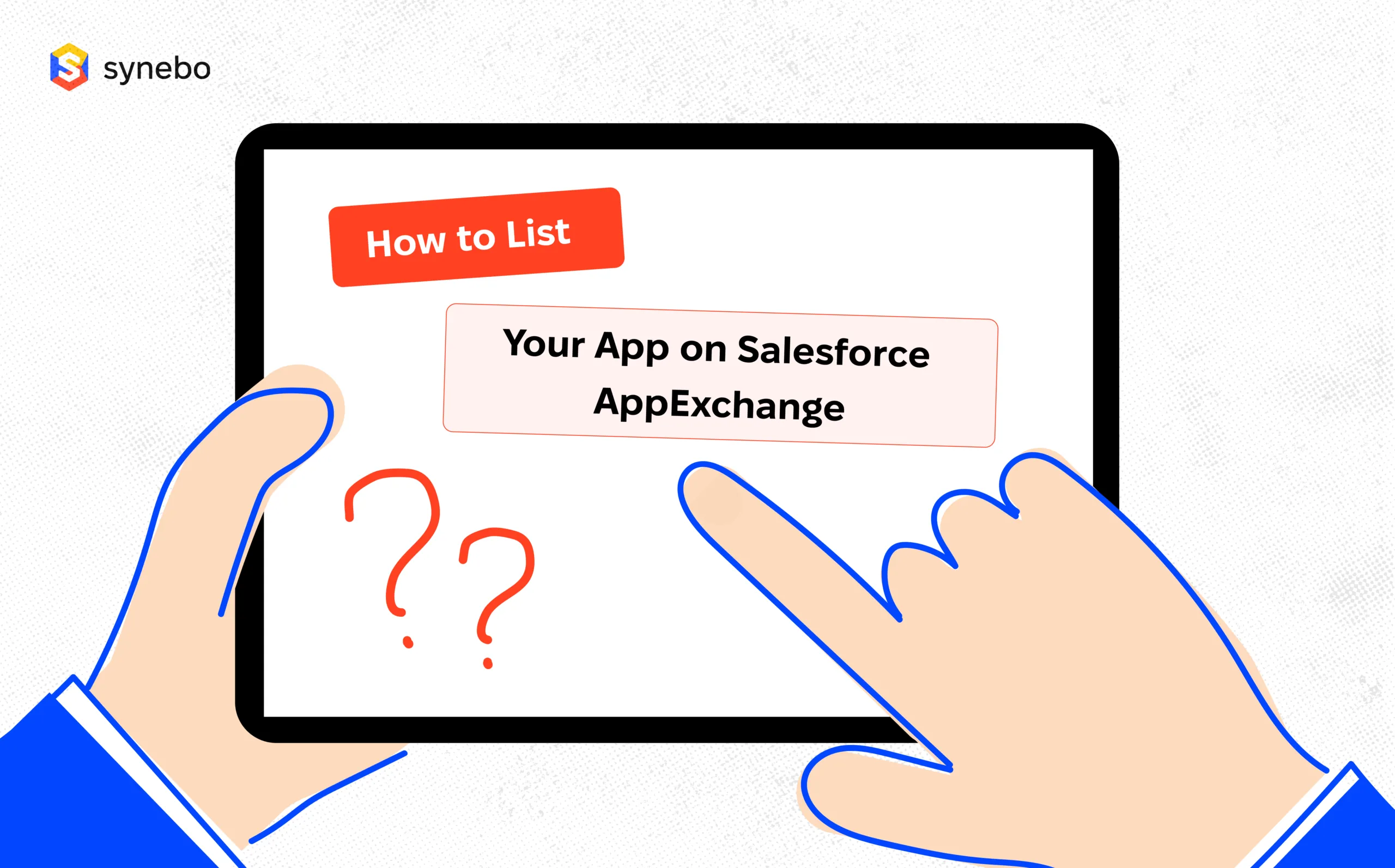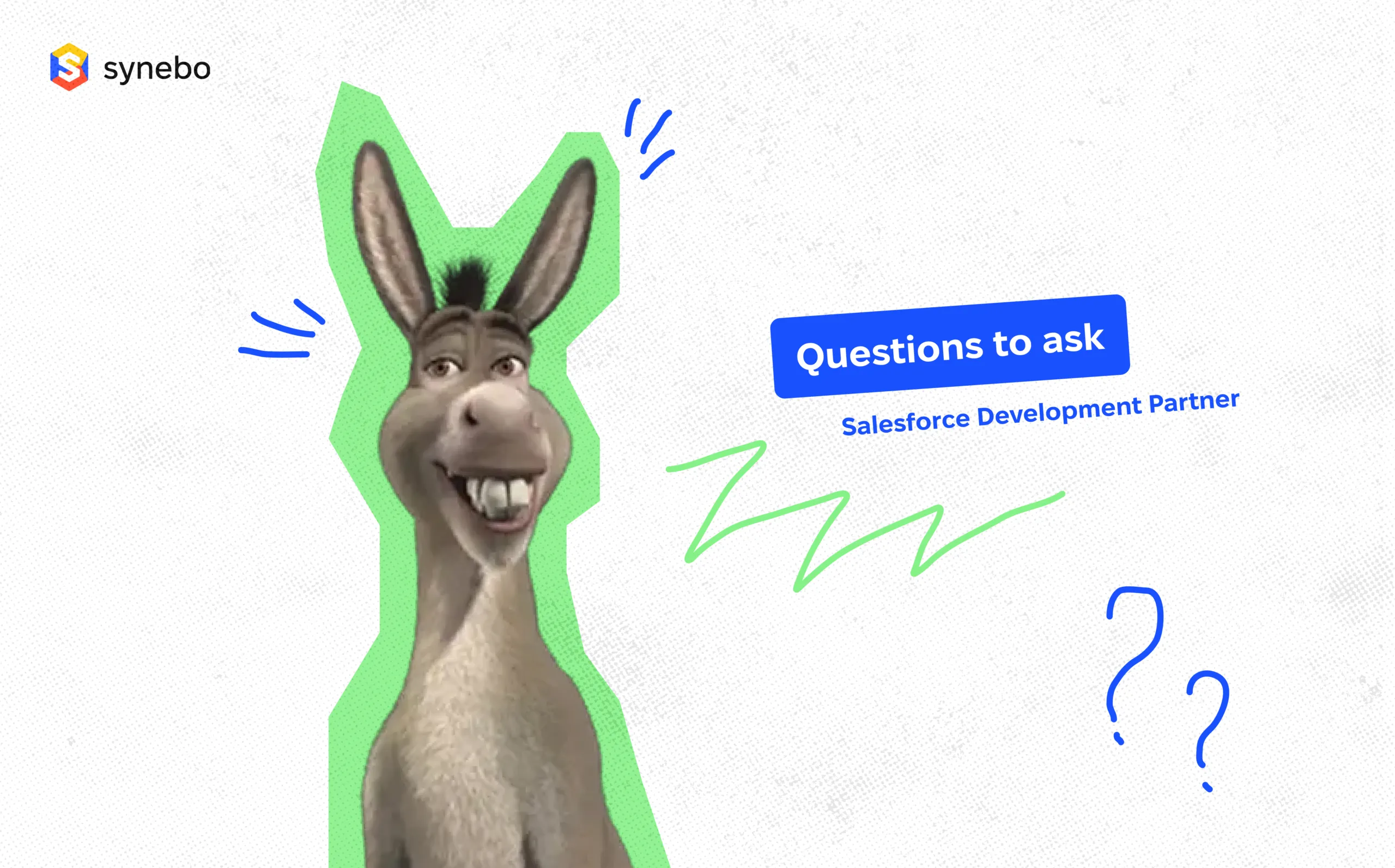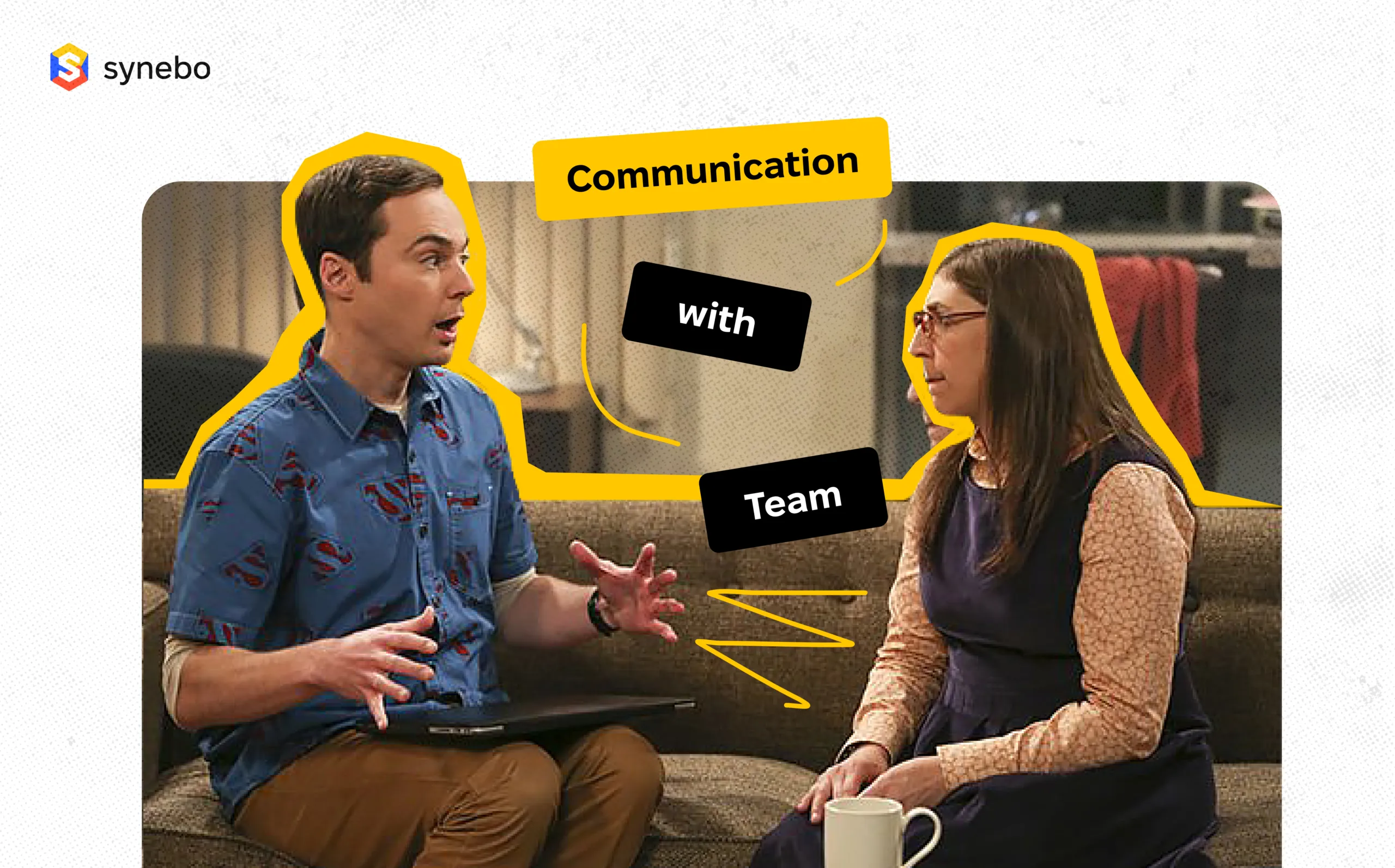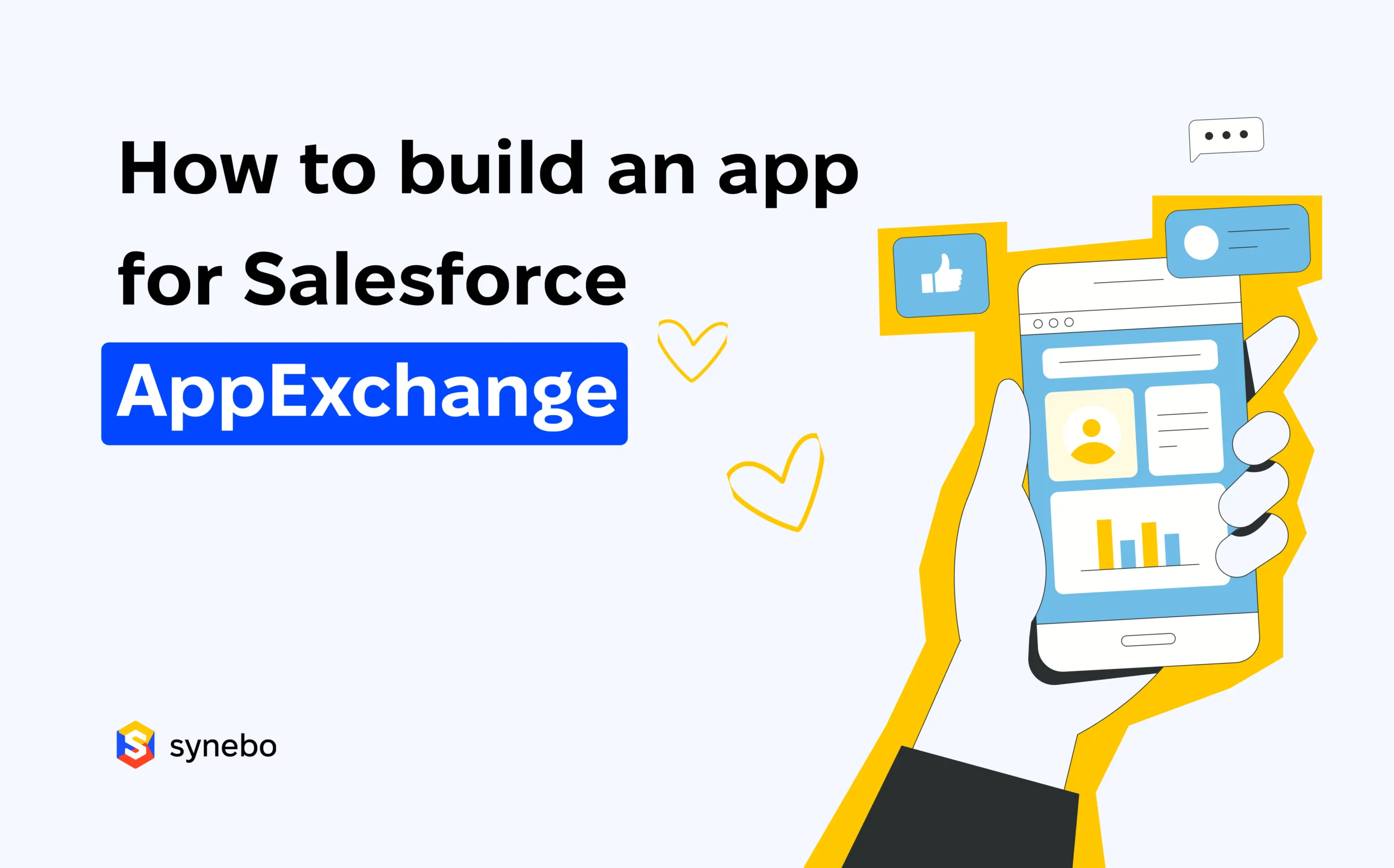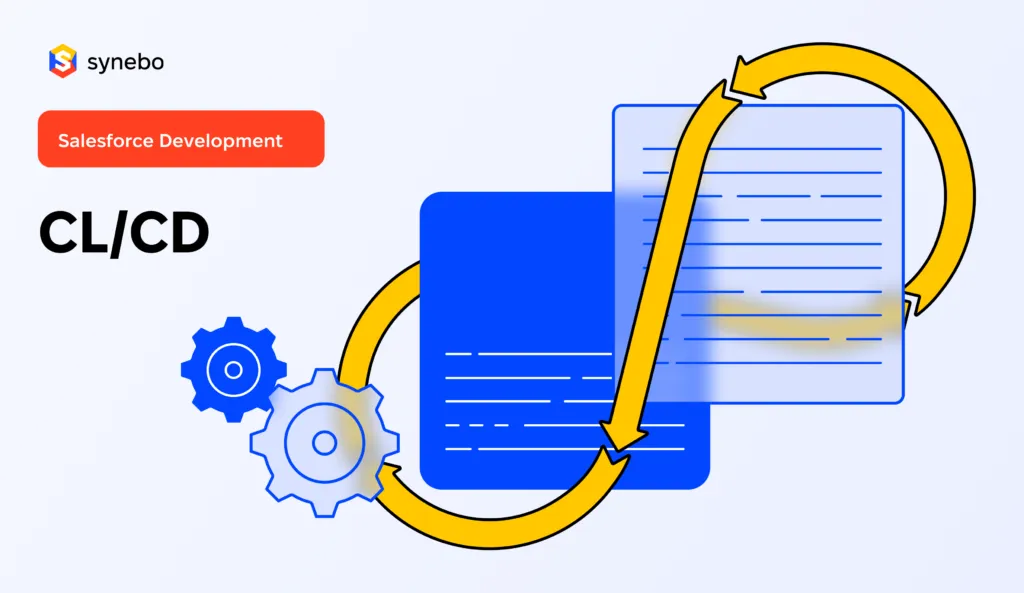Best Ways to Use ChatGPT in Salesforce
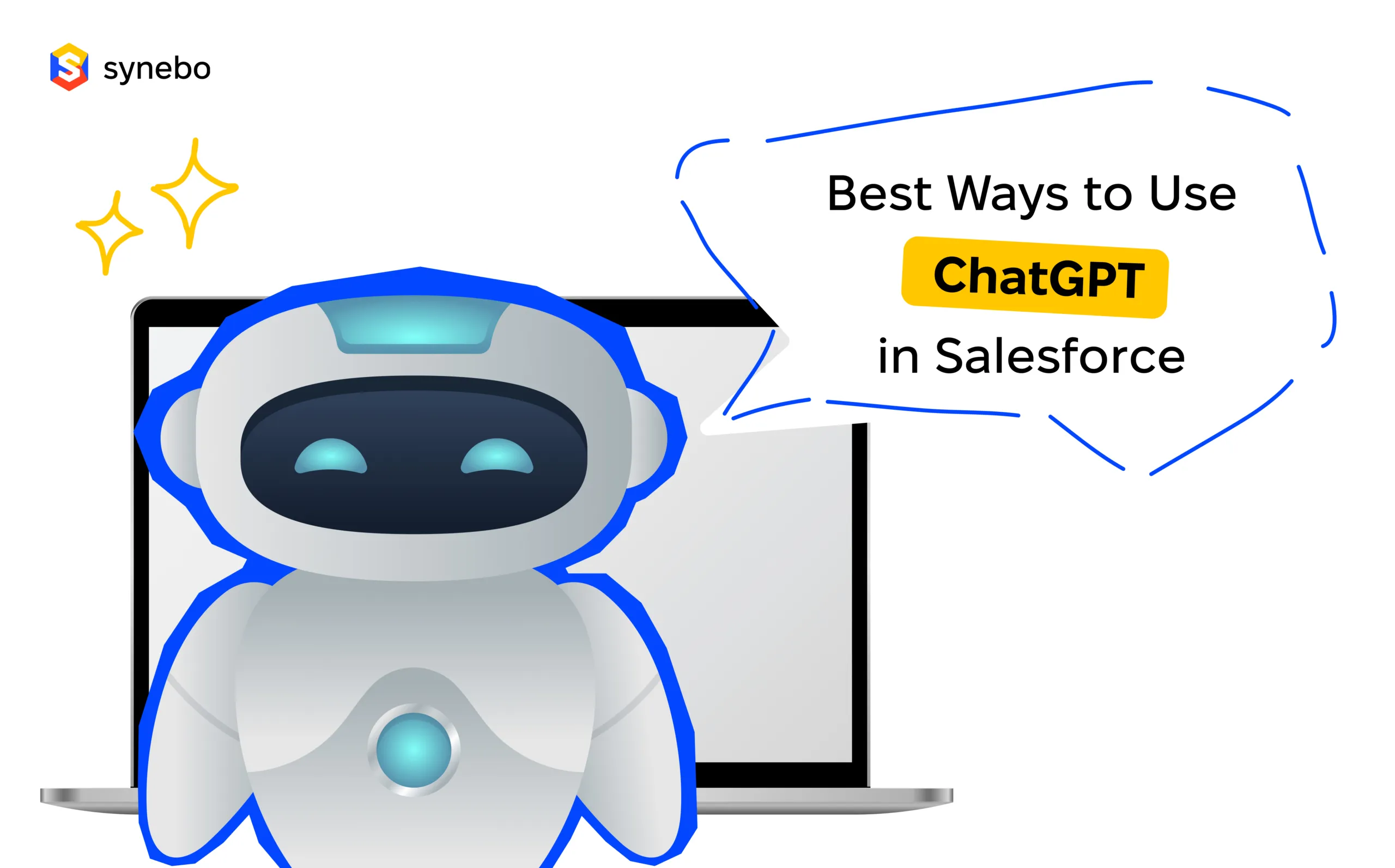
In today’s world, people want quick and easy ways to solve their problems, and most prefer to do it themselves. With over 67% of customers liking self-help options and 72% of companies finding that smart chatbots make their customers happier, it’s clear that using smart technology like ChatGPT in Salesforce, a tool many businesses use, is a great idea. This helps customers get what they need faster and keeps them happy.
As a Salesforce development company, Synebo understands the immense potential and benefits of leveraging ChatGPT in Salesforce. In this article, we explore how to use ChatGPT in Salesforce to transform your business interactions and drive better outcomes.
The Key Benefits of ChatGPT and Salesforce Integration
Before delving into the specific use cases, it is important to have a solid understanding of both ChatGPT and Salesforce. ChatGPT is a state-of-the-art language model developed by OpenAI, capable of generating human-like text based on the provided input. On the other hand, Salesforce is a robust CRM platform that enables organizations to effectively manage their customer interactions, sales processes, and marketing efforts.
Integrating ChatGPT and Salesforce merges cutting-edge AI with comprehensive CRM functionalities, transforming how companies interact with their customers and manage sales processes.
Key benefits and functionalities include:
- Automated customer support. ChatGPT provides real-time, automated responses to customer inquiries, reducing the need for manual intervention and improving response times.
- Personalized experiences. Through continuous learning from human feedback, ChatGPT offers increasingly tailored interactions, enhancing the customer service experience.
- Data-Driven insights. Salesforce’s robust data management capabilities, combined with ChatGPT’s AI, offer deep insights into customer preferences and behaviors, aiding in informed decision-making.
- Sales optimization. The integration enables sales teams to receive intelligent recommendations, helping to personalize sales approaches and identify new opportunities based on comprehensive customer data.
- Enhanced collaboration. By streamlining communication and providing shared insights, the integration fosters better teamwork across customer service and sales departments.
- Continuous improvement. ChatGPT’s learning capability ensures that the system evolves to meet specific industry needs, offering businesses a competitive edge in customer interaction and service delivery.
Interested in how AI can enhance CRM? Read our article on the hows, whys, and whats of AI in CRM to transform your business strategy.
How to Integrate Salesforce with ChatGPT
Now let’s delve into how to use ChatGPT in Salesforce, starting with the initial setup and configuration:
#1 Initial Setup and Configuration
Implementing ChatGPT within Salesforce begins by forming a secure link between the two platforms, ensuring data safety and a smooth integration process. By deploying essential APIs and plugins, companies can integrate ChatGPT into their Salesforce systems, tapping into advanced AI capabilities for customer interactions.
The next critical step involves customizing ChatGPT to meet particular business needs, such as defining its operational scope, autonomy levels, and procedures for escalating issues to human agents. This customization process allows businesses to efficiently balance automated and manual support, guaranteeing precise and swift assistance to customers.
#2 Customizing ChatGPT for Salesforce
Customization is a critical aspect of the integration process, as it enables businesses to tailor ChatGPT’s capabilities to their specific needs. By leveraging Salesforce’s powerful customization features, businesses can fine-tune ChatGPT to reflect their unique tone, brand image, and industry-specific jargon.
One way to customize ChatGPT is by training it on industry-specific datasets. By incorporating data from customer interaction history and previous service tickets, businesses can create a highly personalized experience for their users. This allows ChatGPT to understand the context of customer queries and provide more accurate and relevant responses.
For example, a financial services company can train ChatGPT on historical customer inquiries related to investment strategies, enabling the model to provide tailored advice based on past interactions.
Considering building an app for Salesforce AppExchange? Uncover essential steps and expert tips in our article.
Top Use Cases for ChatGPT in the Salesforce
The integration of ChatGPT with the Salesforce platform brings about a range of exciting possibilities, revolutionizing various aspects of sales, customer service, and more.
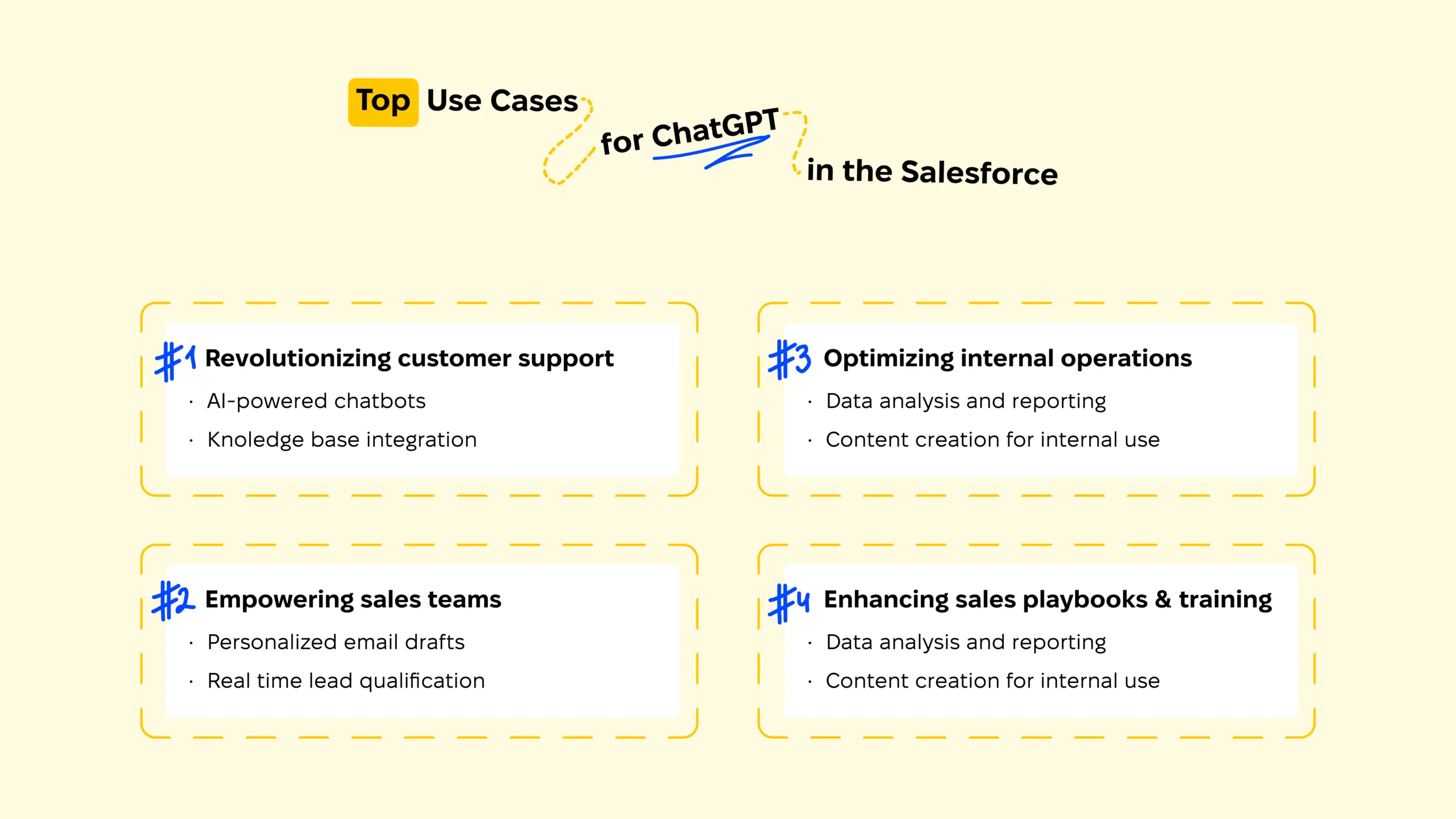
Revolutionizing Customer Support
Enhancing customer support through AI leads to more efficient and personalized interactions, revolutionizing how businesses handle inquiries and support tickets.
- AI-powered chatbots. ChatGPT boosts chatbots, enabling them to comprehend and respond to complex questions while personalizing interactions. Picture a bot that quickly accesses Salesforce data for immediate solutions to common issues.
- Knowledge base integration. Imagine a scenario where customers get answers directly within the chat interface. Integrated with Salesforce Knowledge Base, ChatGPT quickly finds and summarizes articles, providing instant information.
Empowering Sales Teams
By leveraging AI, sales teams can personalize their approach and streamline lead management, significantly improving their sales strategies and efficiency.
- Personalized email drafts. Sales representatives can leverage ChatGPT to craft compelling and personalized email pitches. The model can analyze customer data and suggest relevant talking points, increasing the effectiveness of outreach efforts.
- Real-time lead qualification. ChatGPT can be integrated with lead scoring tools to analyze customer interactions and qualify leads in real-time. This allows sales teams to prioritize high-potential leads and focus their efforts on closing deals.
Optimizing Internal Operations
AI tools like ChatGPT can significantly improve efficiency by automating data analysis and content creation, thereby freeing up resources for strategic tasks.
- Data analysis and reporting. Salesforce generates vast amounts of data. ChatGPT can be used to analyze this data, identify trends, and generate reports with insights that can guide business decisions.
- Content creation for internal use. ChatGPT can help create training materials, internal knowledge base articles, and even automate simple report generation, freeing up valuable time for employees.
Enhancing Sales Playbooks and Training
- Personalize playbooks: ChatGPT can analyze customer data and buying behaviors to suggest relevant talking points and strategies for different customer segments, personalizing playbooks for sales reps.
- Interactive training simulations: Develop interactive training scenarios where ChatGPT acts as a virtual customer, allowing sales reps to practice their communication and negotiation skills in a safe environment.
Looking to master Salesforce Sales Cloud from A to Z? Uncover all you need to know by reading our detailed guide.
Challenges and Considerations When Integrating ChatGPT in Salesforce
Integrating ChatGPT with Salesforce unlocks numerous opportunities for elevating customer service and optimizing business processes. However, to fully leverage these benefits, several critical considerations must be addressed.
- Data privacy and security. Salesforce holds a wealth of customer data. Integrating ChatGPT necessitates ensuring this data remains secure during interactions and adheres to data privacy regulations.
- Bias and fairness considerations. Large language models like ChatGPT can inherit biases present in their training data. This can lead to discriminatory or unfair outcomes in responses. Mitigating bias requires careful monitoring and fine-tuning of the model.
- User education and expectation setting. Customers interacting with a ChatGPT-powered system might not distinguish between AI and human agents. It’s essential to educate users about the system’s capabilities and limitations to manage expectations and avoid misunderstandings.
- Continuous monitoring and optimization. ChatGPT’s responses require ongoing monitoring to ensure accuracy, factuality, and alignment with brand messaging. Regular evaluation and adjustments are necessary to maintain optimal performance.
Adding to these considerations, it’s also important to explore the integration’s scalability. As businesses grow, their customer interaction needs evolve. Ensuring that ChatGPT can scale in tandem with business expansion, without compromising on response quality or system performance, is crucial for long-term success.
Eager to secure your Salesforce CRM data? Delve into our Salesforce security guide for essential concepts, best practices, and expert insights.
Final Take
Integrating ChatGPT with Salesforce transforms customer service and improves operations, leading to faster growth. Synebo helps make this integration smooth, optimizing your processes and boosting customer satisfaction.
Looking to elevate your CRM capabilities with ChatGPT? Let Synebo guide you. Our focused approach delivers customized CRM enhancements that directly address your unique business challenges. From seamless integration services to specialized training for your team, we provide the support you need without overwhelming you with options.










